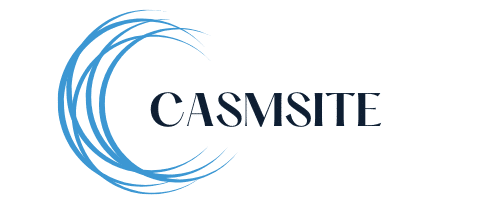How to maintain strong bones in aging?

As we age, our bones lose their strength and density. This is a natural process, but certain factors can accelerate it, leading to conditions like osteoporosis. However, don’t be scared. There are ways to counteract these changes. Keeping your bones strong as you age is not just possible – it’s also doable with some proactive steps. This article will discuss the importance of maintaining strong bones, the risk factors for bone loss, and some practical ways to help maintain bone health.
Understanding the importance of bone health
Bones are the structural framework of your body. They provide support, help you move, and protect your organs. More than that, bones are living tissues that constantly rebuild themselves throughout your life. By about age 30, most people reach their peak bone mass—the maximum amount of bone tissue they’ll ever have. After that, bone remodeling continues, but you’ll start to lose more bone mass than you gain. This is where the risk of osteoporosis comes in.
Avez-vous vu cela : How to maintain a healthy weight during pregnancy?
Osteoporosis is a condition characterized by weak and fragile bones, which makes them more prone to fractures. According to the National Osteoporosis Foundation, approximately 54 million Americans have osteoporosis or low bone density. This condition is often silent until a fracture occurs. Women are at a relatively higher risk, with one in two women over age 50 expected to break a bone due to osteoporosis.
Factors that affect bone health
Many factors can affect your bone health negatively. Age is one of these factors. As mentioned earlier, bone density decreases naturally with age. Women are particularly at risk after menopause due to the sharp decrease in estrogen levels, a hormone that protects against bone loss.
A voir aussi : How to create a healthy and sustainable diet plan?
Certain lifestyle habits can also contribute to bone loss. These include smoking, alcohol consumption, and an inactive lifestyle. Furthermore, having a low body weight is associated with a higher risk of bone loss and fractures.
Medical conditions like rheumatoid arthritis, eating disorders, gastrointestinal surgery, and some medications can also lead to bone loss. Therefore, it’s essential to have regular check-ups with your doctor, especially as you age, to monitor your bone health.
Essential nutrients for healthy bones
Nutrition plays a critical role in keeping bones healthy. Calcium and vitamin D are the two main nutrients required for strong bones. Calcium is a crucial building block for your bones, while vitamin D helps your body absorb calcium.
Adult men and women should aim for 1,000 mg of calcium per day, increasing to 1,200 mg for women over 50 and men over 70. Dairy products, green leafy vegetables, and fortified foods are excellent sources of calcium.
Vitamin D, on the other hand, can be obtained from sunlight, fatty fish, egg yolks, and fortified foods. Adults up to age 70 should aim for 600 IU (International Units) of vitamin D per day, increasing to 800 IU for those over 70.
Regular exercise to boost bone density
Regular physical activity is another crucial aspect of maintaining bone health. Weight-bearing and resistance exercises are particularly beneficial as they force your body to work against gravity, thereby stimulating bone formation.
Weight-bearing exercises can be high-impact, like jogging, tennis, and aerobics, or low-impact, such as walking and stair climbing. Resistance exercises, on the other hand, involve moving your body, a weight, or some other resistance against gravity. This includes activities like lifting weights or doing push-ups.
The key is to choose exercises you enjoy so that you’ll stick to them. Aim for at least 30 minutes of physical activity most days of the week, and remember, it’s never too late to start.
The role of regular health check-ups
Routine health check-ups are crucial for identifying any potential issues early. Your doctor can carry out a bone density test to assess the health of your bones. This test, known as a DEXA scan, is painless and non-invasive.
Women over 65 and men over 70 should have routine bone density tests. Younger people with risk factors for osteoporosis should also consider this test. Your doctor can provide personalized advice based on your risk factors and lifestyle.
In summary, maintaining strong bones as you age requires a multi-pronged approach. It’s about eating a balanced diet rich in calcium and vitamin D, staying physically active, and having regular health check-ups. A proactive approach to bone health can help you stay strong and active for many years to come. Remember, it’s never too late to start taking care of your bones.
Medications and Treatments for Bone Health
There are plenty of medications and treatments available to help maintain and improve bone health. If you’re already at risk for osteoporosis, or if lifestyle changes haven’t been enough to keep your bones strong, your doctor may recommend medication. It’s important to discuss with your healthcare provider the potential side effects and benefits of these medications to ensure they’re the right choice for you.
There are two types of medication for treating bone loss: antiresorptive medications, which slow down the process of bone loss, and anabolic drugs, which increase the formation of new bone. Bisphosphonates are a type of antiresorptive drug and include popular brands like Fosamax and Actonel. These help maintain bone mass and reduce the risk of fractures.
Anabolic drugs like Teriparatide and Abaloparatide can be used for individuals who have very low bone density or who have had fractures already. Another medication, Raloxifene, is particularly useful for postmenopausal women as it mimics the bone-protecting effects of estrogen.
Hormone-related therapy can also be effective in improving bone health. Hormone replacement therapy (HRT), for instance, can help to balance estrogen levels, reducing the rate of bone loss. However, HRT also carries risks such as blood clots and certain types of cancer, so it’s important to discuss the pros and cons with your doctor.
Conclusion: Embrace Aging Changes with a Proactive Approach to Bone Health
Aging changes are inevitable, but that doesn’t mean we can’t combat the effects they have on our bones. Taking care of your bone health should be a top priority as you age. The key is to maintain a balanced diet, get regular exercise, and go for routine check-ups. It’s important to understand the risk factors and take preventative measures to keep bones strong and healthy.
If you’re susceptible to bone loss due to factors like age, genetics, or certain medical conditions, don’t delay in talking to your doctor about it. There are many treatment options available, from lifestyle changes to medications, that can help maintain or improve your bone health.
Remember, your bone health is in your hands. You have the power to make the changes necessary to keep your bones healthy and strong. The Mayo Clinic recommends taking a proactive approach to bone health, as prevention is always better than cure. So, stay active, eat well, get regular check-ups, and your bones will thank you for it.
In the end, the goal is to keep the aging changes at bay and maintain strong bones, thereby improving overall health and quality of life. After all, strong bones mean a stronger you. It’s never too late to start taking care of your bones. So start today, and keep those bones strong and healthy as you age.
